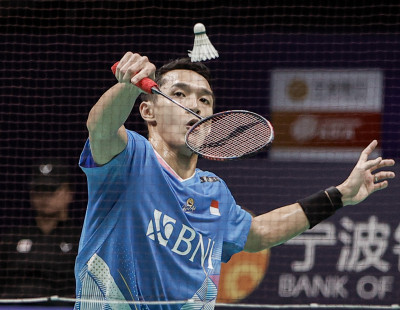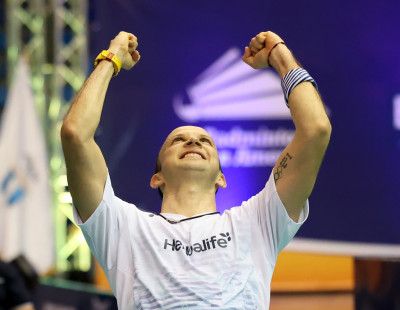Badminton continues to be one of the most popular sports, played by over 339 million people worldwide, as revealed in a BWF commissioned report by Nielsen in 2019.
It is the fastest racket sport in the world and one of only few in which men and women of all ages and abilities can compete equally. A single match can provide a wide range of health advantages.
To commemorate World Health Day, BWF has not only compiled a list of fantastic reasons to get involved with badminton, English mixed pair Gregory Mairs and Jenny Moore have also joined in on the action to showcase how much the sport can help improve your health in their brand-new video.
Here’s how playing badminton is beneficial.
- Assists in prevention of stress.
- Self-esteem enhancement and keeps away problems with weight.
- Encourages positive attitude, self-awareness and better expression.
- Improves coordination, balance, agility and speed.
- Playing recreationally raises heart rates to 80-85 per cent of the players’ predicted maximum heart rate, which is significantly higher for that of tennis.
- During 20 minutes of badminton, players will make at least 350 changes in direction of 90 degrees or more, building speed, strength, agility and flexibility.
- Social interaction can help build confidence and results in positive feelings after a game – plus you can play single or doubles.
- Engages your brain in a positive way by having to think about what you’re doing – whether it’s deciding where to serve, reacting quickly to a smash or where to stand on court.
- The average person burns 475-525 calories per hour playing socially. With a competitive game, they can burn 500-675 calories per hour.
Regularly badminton sessions may help ease health conditions by releasing feel-good endorphins and other natural brain chemicals to enhance your sense of wellbeing and help take your mind off worries to get away from the cycle of negative thoughts that can feed depression.
Badminton is a sport for all and hugely beneficial for children with intellectual disabilities, as it can be utilised to improve a child’s attention level and physical fitness, as revealed by Akin et al 2017, Chen et al 2021.
You can also get involved with AirBadminton – an ambitious development project in partnership with BWF’s Global Development Partner HSBC – designed to create opportunities for people of all ages and ability to play badminton on hard, grass and sand surfaces in parks, gardens, streets, playgrounds and beaches around the world.
Be sure to also check out our free Shuttle Time activities, designed to provide children with a positive image of badminton through many opportunities to have fun, engage with others, and experience success.
DID YOU KNOW?
Regular play is also great for keeping hearts healthy, conditioning and strengthening the heart muscle, reducing hypertension and limiting the risk of blood vessels clogging.
Getting physically active doesn’t always mean pumping iron at the gym or running; badminton may just be the right activity for you.
To see the benefits for yourself, pick up a racket and give it a go with your family and friends.






























